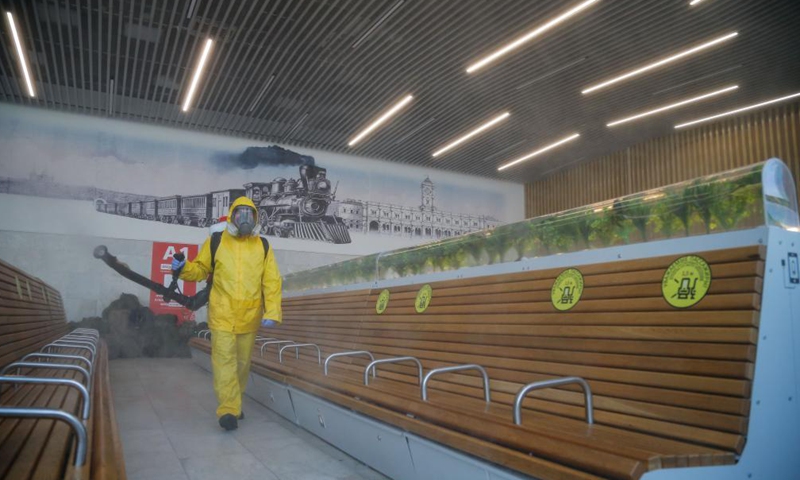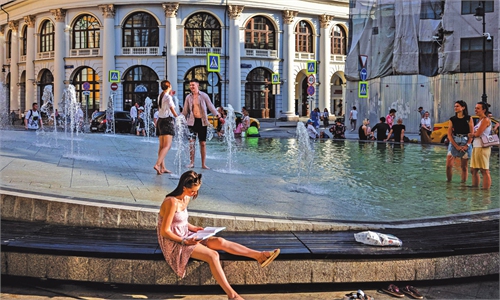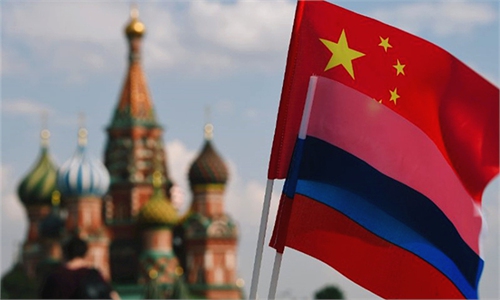
A municipal employee wearing a protective suit disinfects a railway station in Moscow, Russia, on June 24, 2021. Russia logged 20,182 new coronavirus infections over the past 24 hours, the highest daily increase since Jan. 24, taking the nationwide tally to 5,388,695, the official monitoring and response center said Thursday.Photo:Xinhua
Work-from-home restrictions were reimposed in Moscow on Monday as Russia tried to contain a deadly coronavirus wave fueled by the Delta variant, while several Asian nations also tightened curbs to contain growing outbreaks.
While many wealthy countries have brought down infections through rapid vaccinations, outbreaks are still raging from Bangladesh and Indonesia to South America, including many fueled by the highly contagious Delta variant that was first detected in India.
Russia has seen an explosion of new cases in the last two weeks because of this variant, and authorities announced fresh restrictions from Monday in the capital as they pushed citizens to get a shot.
"To stop the pandemic, one thing is needed: rapid, large-scale vaccinations," Moscow Mayor Sergei Sobyanin told state TV on Saturday.
From Monday, people will have to work from home in Moscow - the epicenter of Russia's outbreak - with exceptions for vaccinated employees.
The outbreak in Russia has also caused alarm because of the ongoing Euro 2020 soccer tournament which has seen thousands of fans attend matches in different countries across the continent.
Saint Petersburg has already hosted six matches, and is the venue for one of the quarter-finals on Friday. Spectator numbers have been capped at half-capacity, but still upwards of 26,000 people.
The virus also remained on the march across the Asia-Pacific region, where Bangladesh tightened its lockdown on Monday, curtailing most economic activity.
The South Asian nation, home to more than 160 million people, will shut down shops, markets, transportation and offices in stages by Thursday, and the decision sparked an exodus of tens of thousands of migrant workers from the cities.
"We did not have any choice but to leave [the capital Dhaka]," Fatema Begum, 60, told AFP while waiting for a ferry.
"During lockdown, there is no work. And if we don't work, how do we pay rent?"
Thailand from Monday also reimposed restrictions on restaurants, construction sites and gatherings in the capital Bangkok and its suburbs because of a spike in cases.
Indonesia battled one of the worst outbreaks in Asia, reported a daily record 21,000 new cases on Sunday as fears grew about the ability of its stretched hospitals to handle the surge.
AFP



